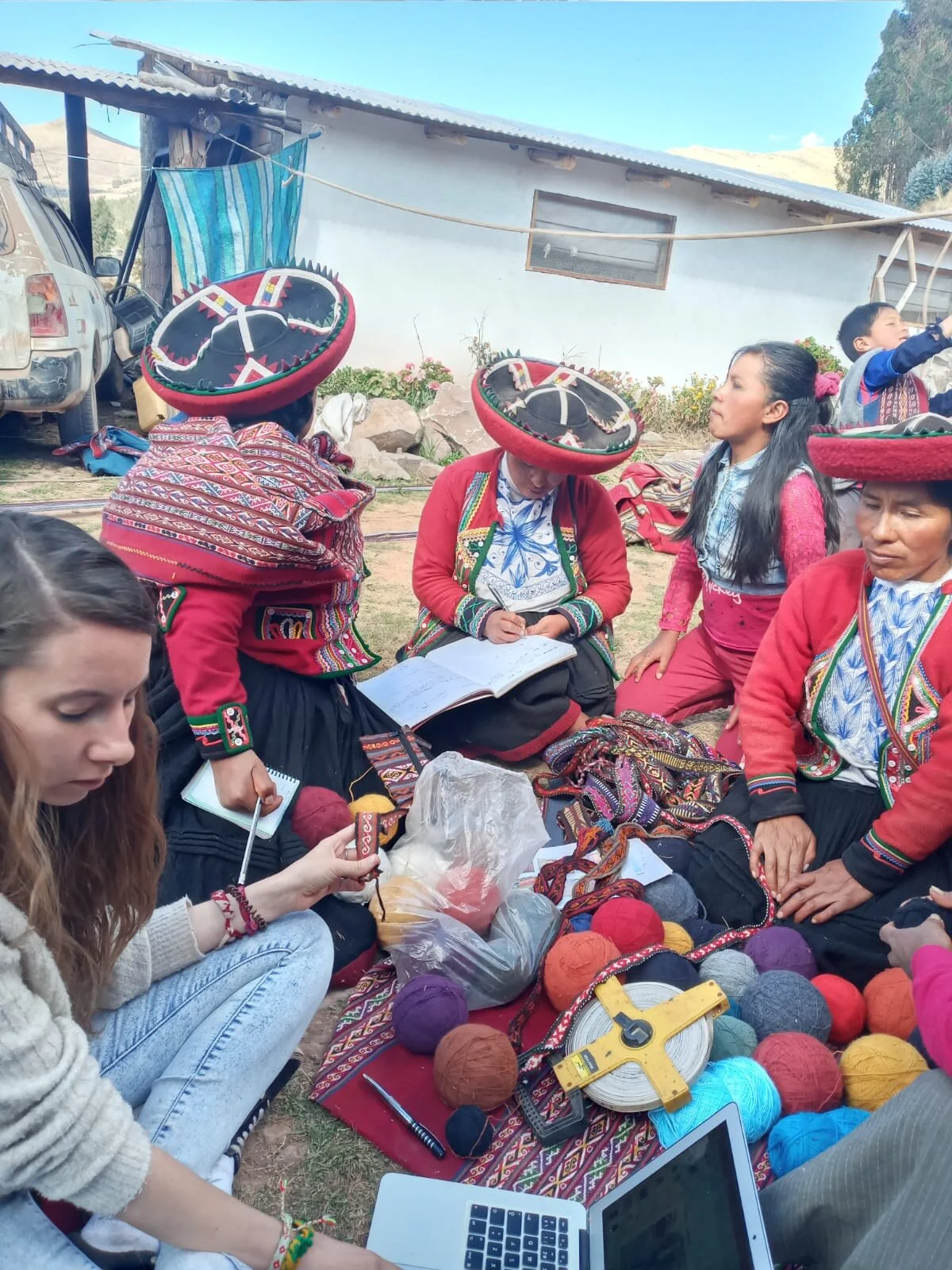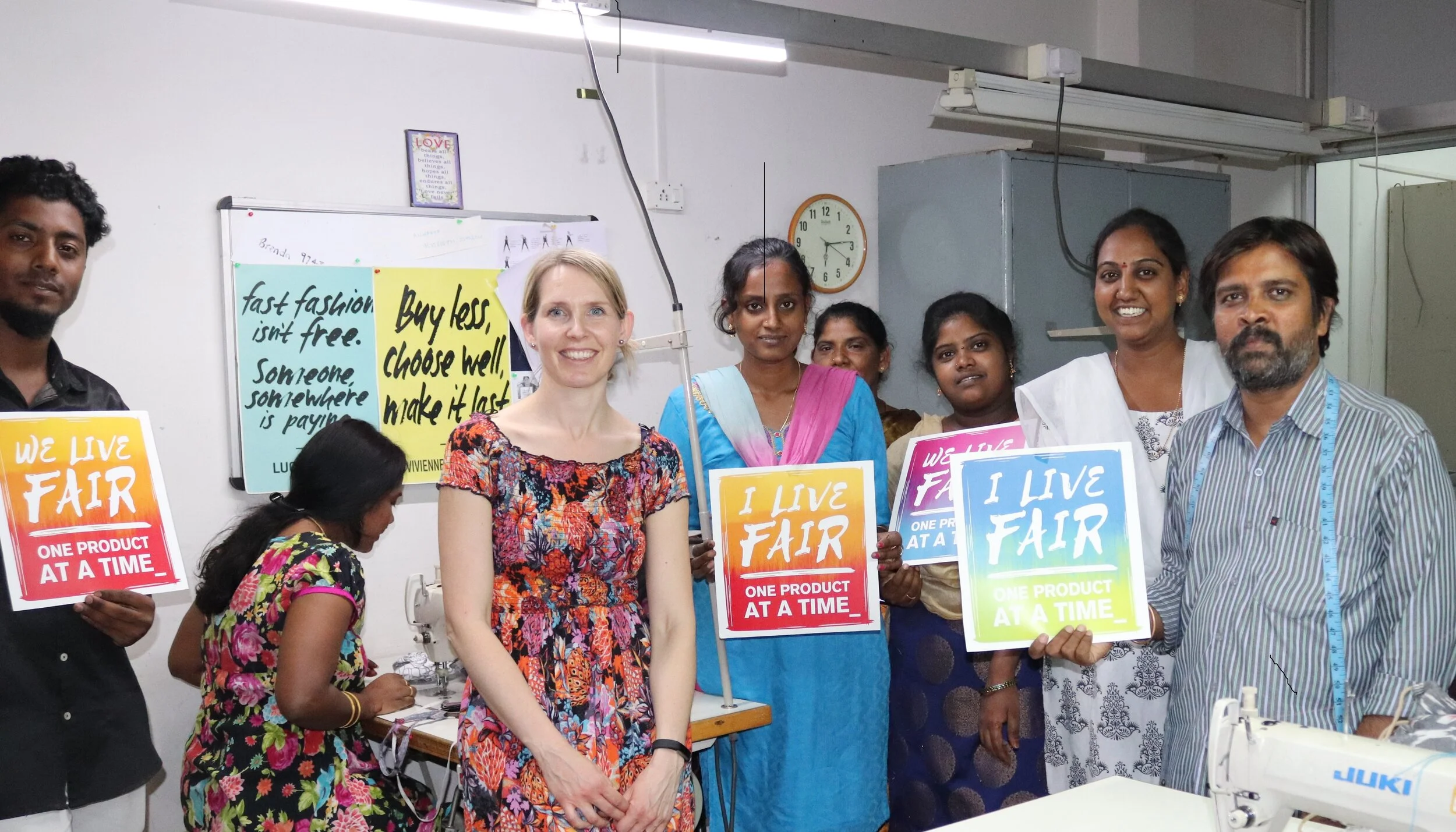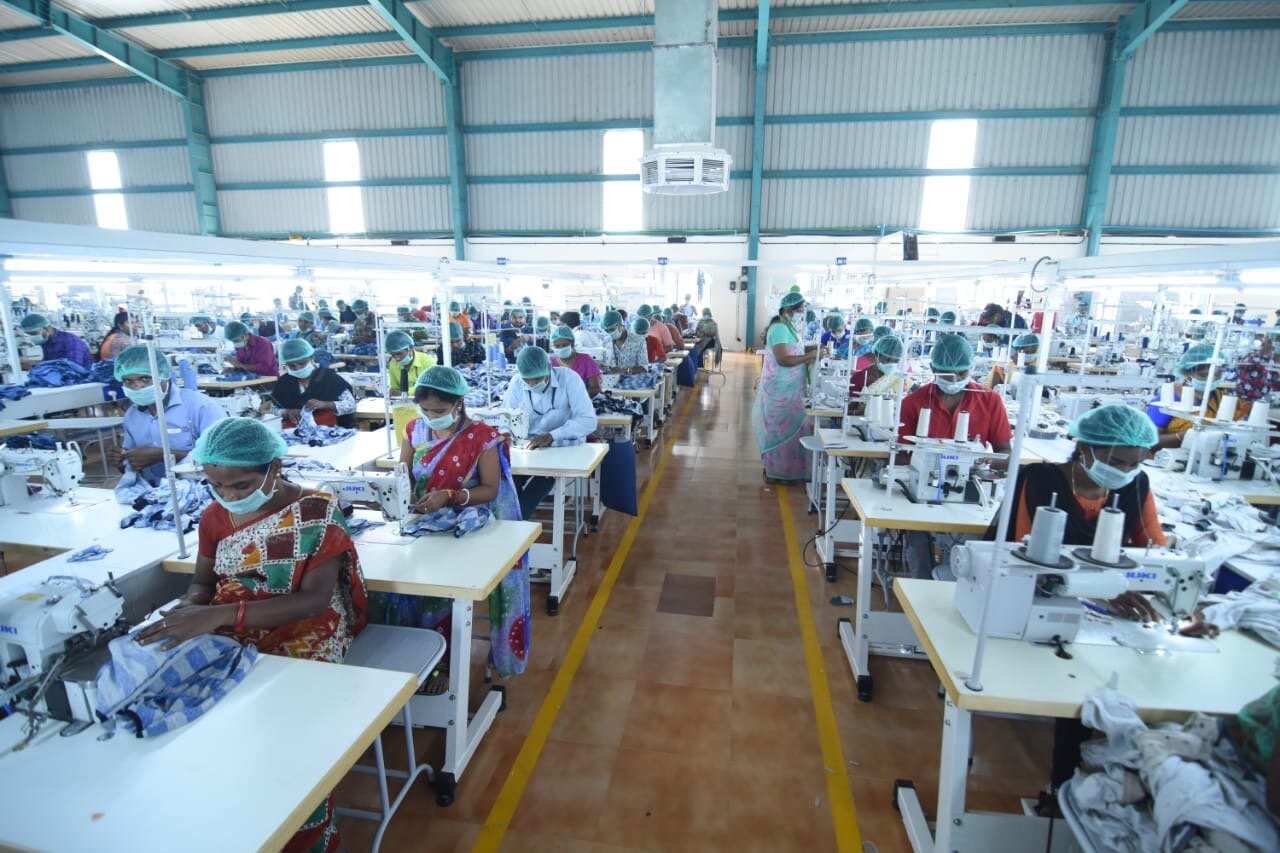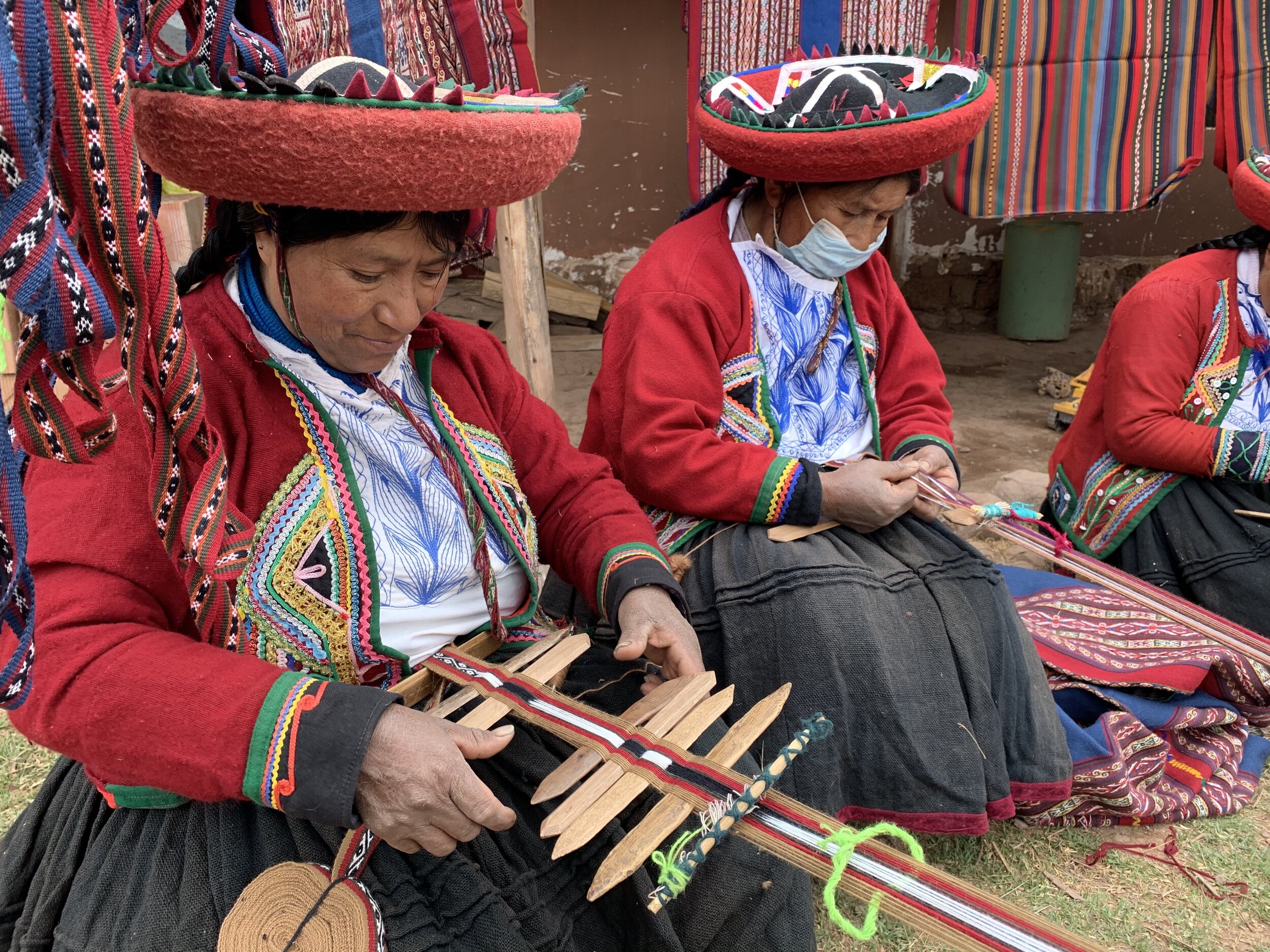
Handmade Stories:
How A Volunteer Trip To Peru Resulted In The Creation Of A Slow Fashion Brand Standing Up For Artisans And Communities.
Stories | Elena Brook-Hart Rodriguez | 03/11/2021
At the beginning of 2020 I quit my job in London to go volunteering in Peru for what I hoped would be a life-changing experience. Little did I know a global pandemic was coming our way and I would end up staying in Peru for almost a year, making decisions that would indeed change my life forever.
Photo: Image courtesy of Handmade Stories
I grew up in Valencia, Spain, and have always had an appetite for adventure. Instead of going to university, I started working to fund a move to Australia. I guess the saying, “Life’s not meant to be lived in one place” really does apply to me. I eventually went back to Spain to do a degree in advertising, followed by a move to London to do a postgraduate degree and start my professional career as a strategist. That was my dream. But after working in agencies for a number of years, I felt that there had to be something more to life. The stress and the deadlines weren’t worth it. I had been struggling with my mental health for a few years and, with my 30th birthday coming up, I decided I needed to take some time for myself to see what kind of life I really wanted to live.
“The world of Cleofe, María, Ignacia, Bety, Mercedes, Flora, Elsa, Justina and Lourdes. They’re who this story is really about.”
So I went online and found a volunteering programme that I thought would allow me to do something a bit more meaningful with my skills: helping micro-businesses in Peru. I didn’t really know what I’d be doing or who I’d be helping, but it turned out we would be going to rural communities in the Andes to help women who wanted to start their own businesses. This immersed me into a whole new world. The world of Cleofe, María, Ignacia, Bety, Mercedes, Flora, Elsa, Justina and Lourdes. They’re who this story is really about.
They live in a community in the Peruvian Andes, 3689 feet above sea level, growing vegetables and breeding animals to sell in local markets and for self consumption. Their husbands also work the land and do construction work in the community. They trade amongst themselves and have enough to feed their families, but in today’s world they need more. They need money to send their kids on to higher education, to buy them things, to give them a better future. That’s why they wanted to start a textile association so they could receive tourists and teach them about their traditions, while bringing some income home.
“When the pandemic hit, the volunteering organisation closed and asked us to leave.”
Photo: Image courtesy of Handmade Stories
When the pandemic hit, the volunteering organisation closed and asked us to leave. All other volunteers left, but I didn’t feel it was time for me to go home. Something was telling me to stay. I can’t lie and say I knew that was my true calling straight away. I just felt that there was something I could do there, and I wasn’t ready to return to my London life yet. I did a bit of freelance work for local businesses and after a while, seeing that quarantine was getting extended and things were not going to get better any time soon, I saw it clearly (and this time it was true). I knew what I wanted. I wanted to build something that would help these women. They had been wanting to receive tourists, but no tourists were going to come any time soon. So I thought: if tourists aren’t coming, let us go to them! So I got in touch and asked if they wanted to make some textiles for me.
They were so happy to hear I wanted to give them work! So we arranged to meet and I explained I wanted to create a platform to help them. My vision was to incorporate their traditional textiles into modern clothes so we could reach a wider audience and tell more people about their crafts and the importance of keeping their traditions alive. They were over the moon with the idea, and so we got to work!
They taught me about their traditional motifs, how they learnt to weave them, and what they mean. Each motif tells a story, and represents something in the world around them. Some of them are paths, some represent their animals, the tools they use to work the land… they are a representation of their lives. Even the colours have meaning and tell stories. That’s why I decided to name the brand Handmade Stories.
They told me some of them were learning to weave because they saw it as a way of bringing income home. They relied on their husbands to provide for the family but times were getting tougher and they needed to do something to support their husbands. I learnt that weaving traditions had started to disappear as younger generations were not learning them from their elders anymore, but in recent years they have been trying to recover them.
I sat with them and helped them calculate what to charge for their goods. Looking at how much the materials cost, how much time it took them to weave each textile, and how much they wanted to make from it. It turned out some of them had been selling their crafts for less than it was costing them to produce.
Day after day we learnt how to work together, to find a middle way where they could still look after their families, their land and their animals (kids have been off school since the beginning of the pandemic, so I’d help them with their homework while the women weaved). I’d travel to the community so they wouldn’t have to. We set up a system that allows them to work flexibly and still be with their families.
But I didn’t want their success to depend solely on me. I knew some of them wanted to set up their own local businesses before I met them, and I encouraged them to do it. I told them I’d support them and do as much as I can to see them succeed. I will also dedicate part of the profits to development projects in the community, but I want them to pick what the projects will be, as they know what they need best. It could be training, legal advice, a fund to send their kids to university, building a place where they can receive tourists, buying equipment, or anything they think will help them.
“He was so happy he didn’t have to spend long days outside and could work from home and help his wife with their baby and two little kids”
While living in Cuzco I met Luis Alberto, a traditional jewellery maker. The market where he sold his jewellery had closed due to Covid and he couldn’t sell it anymore, so he started to look for jobs elsewhere, and ended up selling bread in the streets. I’d been looking for a traditional jewellery maker to do a jewellery range, so when our paths crossed we knew it was meant to be. He showed me his workshop in his house and introduced me to his lovely family. And we started working on the jewellery almost straight away! He was so happy he didn’t have to spend long days outside and could work from home and help his wife with their baby and two little kids. His dad was selling some items at their front door and was really happy to go back to his job helping his son in the workshop.
Photo: Luis Alberto’s father, Leonardo. Image courtesy of Handmade Stories
Watching them work was incredible to me. I’d never seen someone make a piece of jewellery from start to finish, from melting the silver to polishing the stones. I was so amazed with the results! Every piece is so carefully made, it makes it so special!
Soon after that, a woman told me her husband was in jail and they were really struggling as she had little kids to care for. They needed her husband to work. She told me there were more men in there willing to work, and their families would appreciate the support. In Peruvian prisons there is a programme called Productive Prisons, where they teach inmates trades, and encourage businesses to employ them while they’re in prison. The trades vary from making traditional textiles using looms to woodwork or shoemaking. Through this programme, they ensure they leave with a trade and some of them even set up their own businesses while they’re in prison.
At the time visiting the prison wasn’t allowed because there were a high number of Covid cases inside, and they wanted to prevent new infections, so I worked through the families and decided to do a household range with them, using traditional textiles made by the men. We would work the prices out with the families, and the families would hand over the materials and designs to the prison officers to pass them over to the men. There were times where Covid got worse and they weren’t allowed to leave their cells to work in common areas. So up until the goods left the prison, I wasn’t able to see what they looked like. It has been a very challenging part of the journey, but all the families have been so grateful that it makes it all worth it. It's weird to know you have impacted the lives of people you haven’t actually been able to meet yet-but good weird.
So then the time came to go to Lima (the capital) to look for factories that could help me with the designs and would produce the clothes, as that’s where the textile industry is in Peru. I knew I wanted to work with factories who treated their employees fairly and paid a fair wage. I’m not going to lie, looking for a factory was one of the hardest things of the whole process, especially not having a fashion background, as I needed someone who would help me bring the collection I had in mind to life and would be able to advise me on which fabrics to use. I contacted over 50 factories. I needed to find one that ticked the boxes and also had experience exporting, as the regulations are different in Peru. I also wanted to use fabrics made in Peru. With so many things to take into consideration, it was really quite overwhelming.
“The investment has all come out of my savings so I’m under quite a bit of pressure to make it work! But even if it doesn’t work out, I’ll continue to support them and help them in any way I can.”
After many phone calls and meetings, I found a group that ticked all my boxes! They are a group of small family-owned factories that employ local people and pay fair wages. I showed them my designs and where I wanted the traditional motifs to be incorporated. We worked together to pick the fabrics and decide on all the details. I was so lucky that I found someone that could advise me and teach me. Types of buttons, fabrics, seams, zips, it was all new to me! But after a couple of months, we had the first prototypes and things got real. It was amazing to see my visions come to life!
I am now in the UK trying to set up the operations here, figuring out fulfillment, insurance, packaging and doing the marketing. The journey is still far from over!
Photo: Elena, Image courtesy of Handmade Stories
The company is registered in the UK as it was easier to set it up here (I did it online from Peru!) and the plan is to sell mainly in the UK and Europe. It’s also easier to send the products from the UK, and cheaper for the end customer as well. I am setting everything up so I can work from anywhere in the world, so when I go back to Peru, people will still receive their parcels. I’m still in touch with everyone I work with in Peru and they continue to work while I’m here. The investment has all come out of my savings so I’m under quite a bit of pressure to make it work! But even if it doesn’t work out, I’ll continue to support them and help them in any way I can.
We are launching the clothing and jewellery this Spring, hopefully at the beginning of April. Very soon! It’s so exciting and scary to see how people will react! For now we’ve got the Instagram account where I’m starting to share pictures of the products and I’ve got a mailing list people can subscribe to. I will give priority to subscribers so they will be the first to know when we launch and we’ll open the shop just for them to start with before we share it with the world.
Our pieces are unique because they are either completely handmade or incorporate a handmade element and we’re only offering them in limited quantities. So it’s quite encouraging to see a lot of people have already signed up, I guess they don’t want to miss out!
It’s been a hell of a ride, and a steep learning curve. I think steep is an understatement. I hope people take an interest in what we are doing, and with time we can become a platform that helps different groups of people, not just in Peru but in other places too.
You can follow Elena and Handmade Stories’s journey via the links below!
Sign up to Handmade Stories mailing list
Scroll below to see some of Handmade Stories Jewellery and apparel:

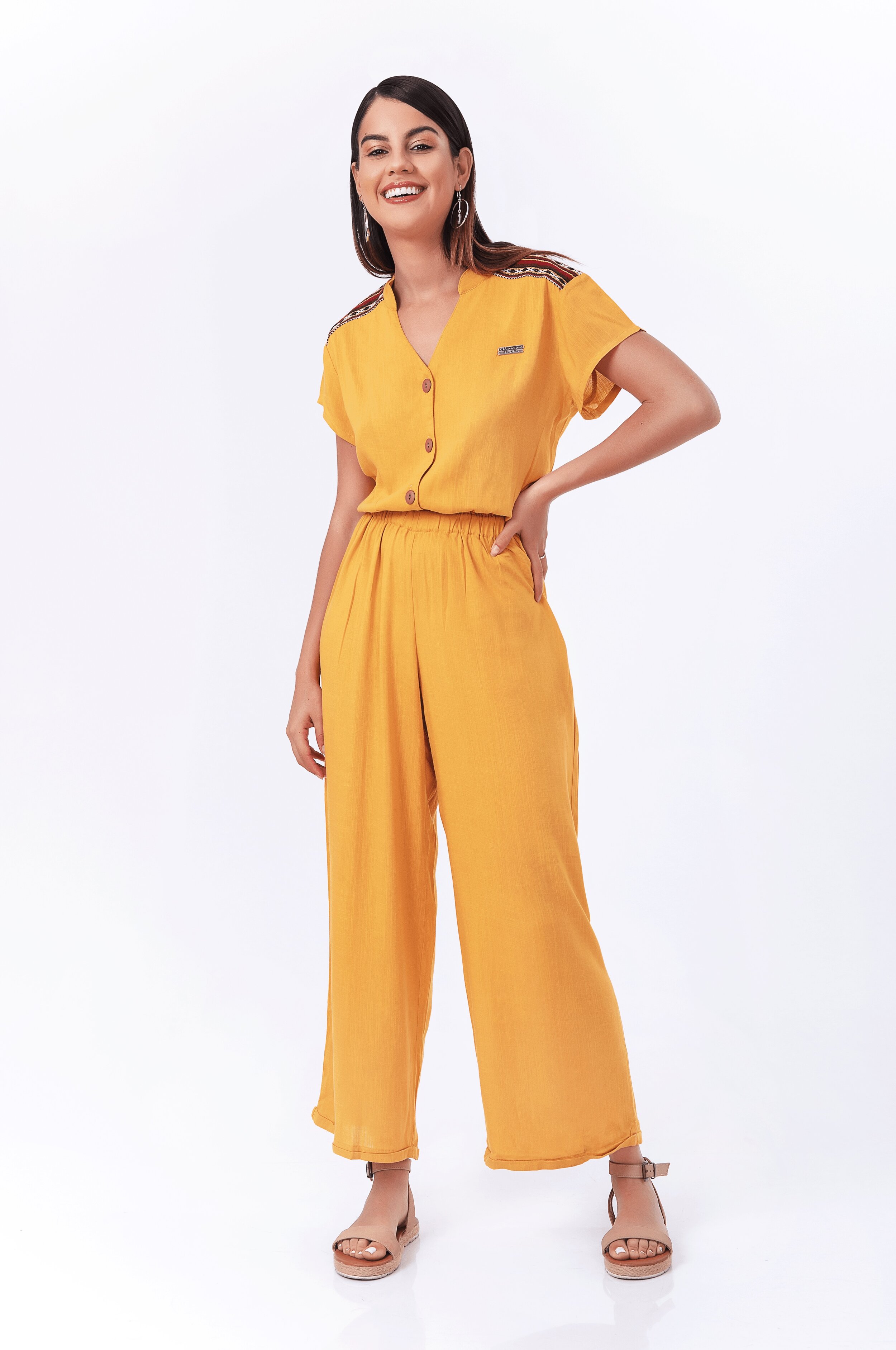
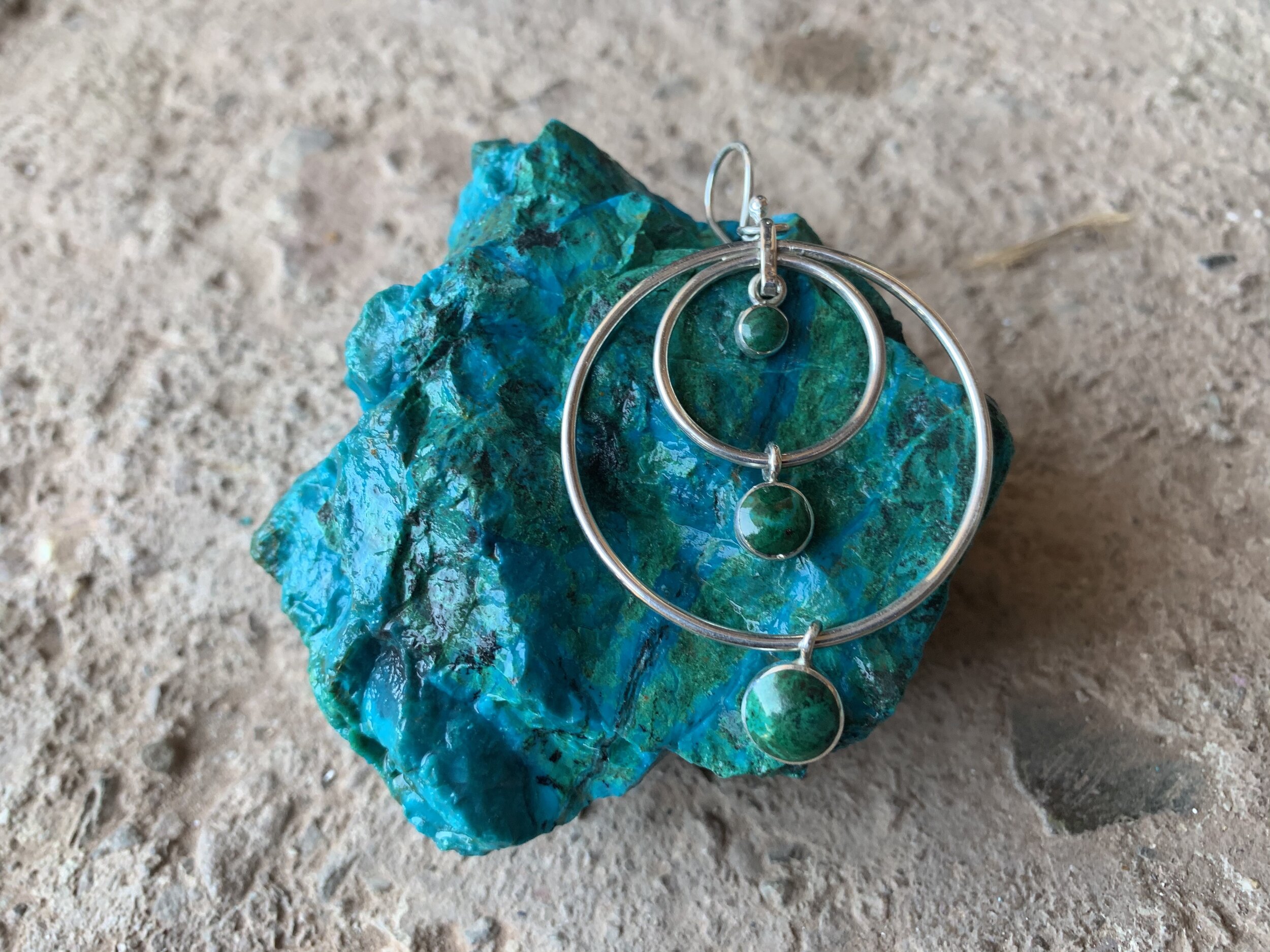
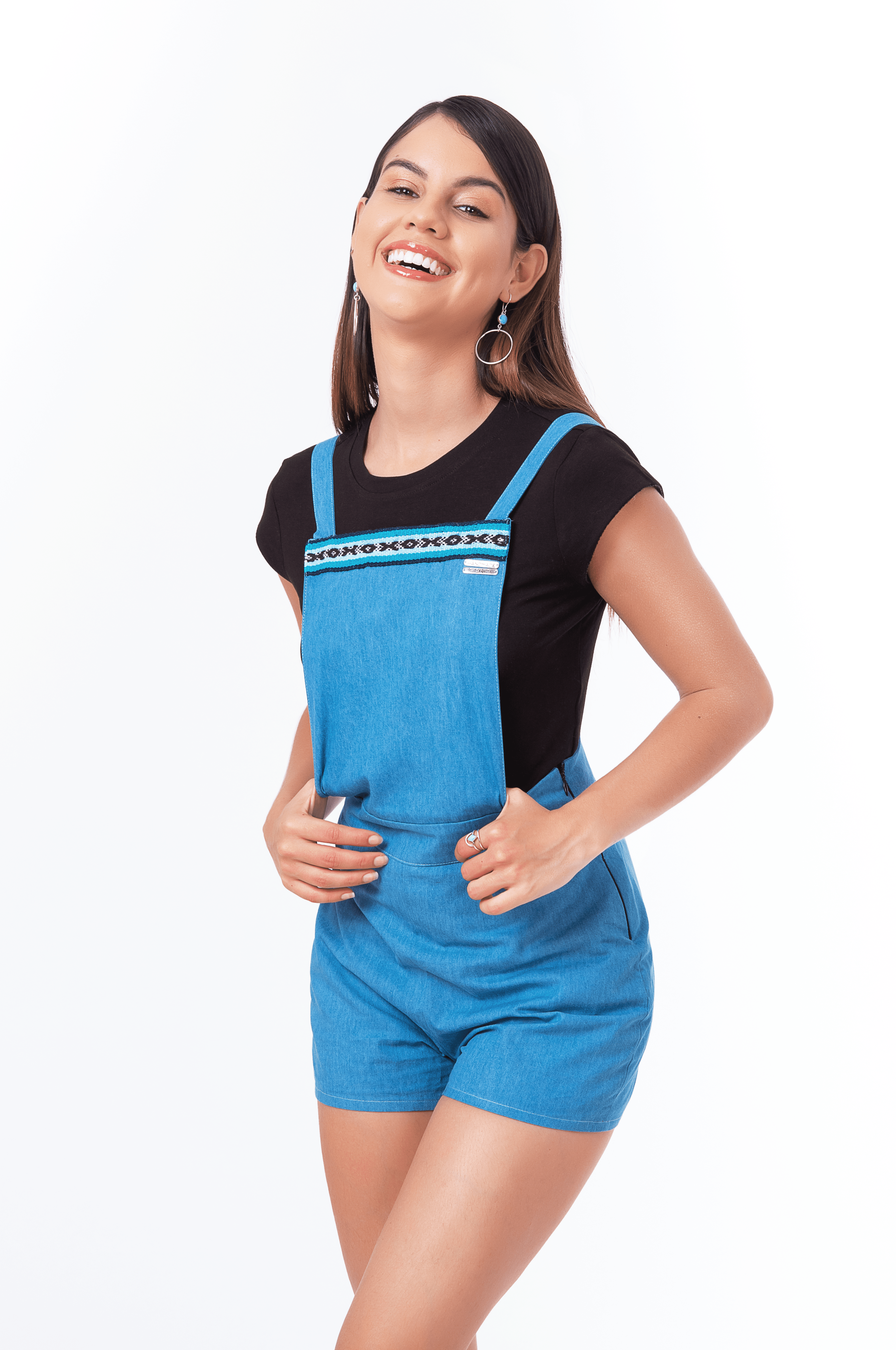
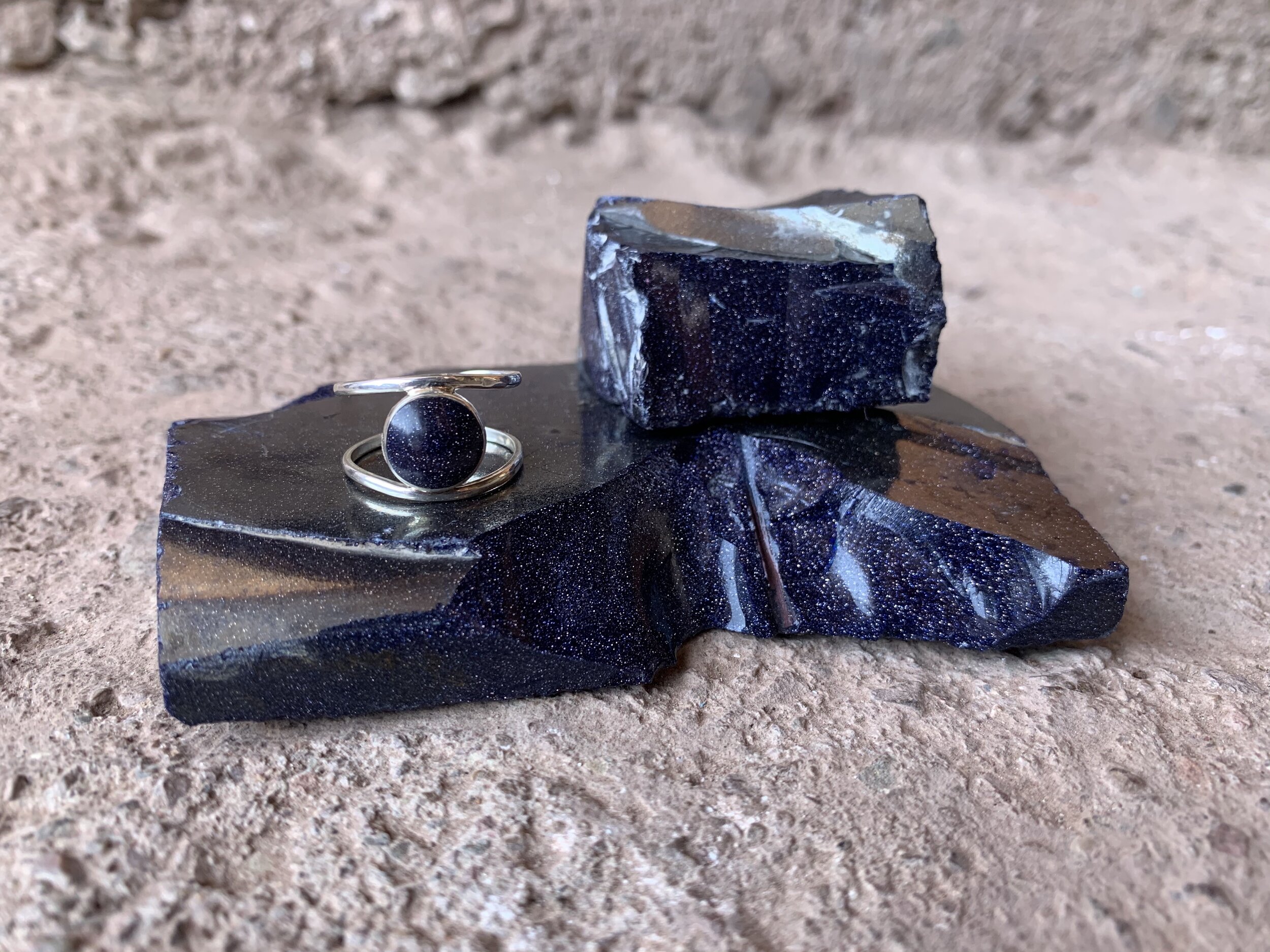
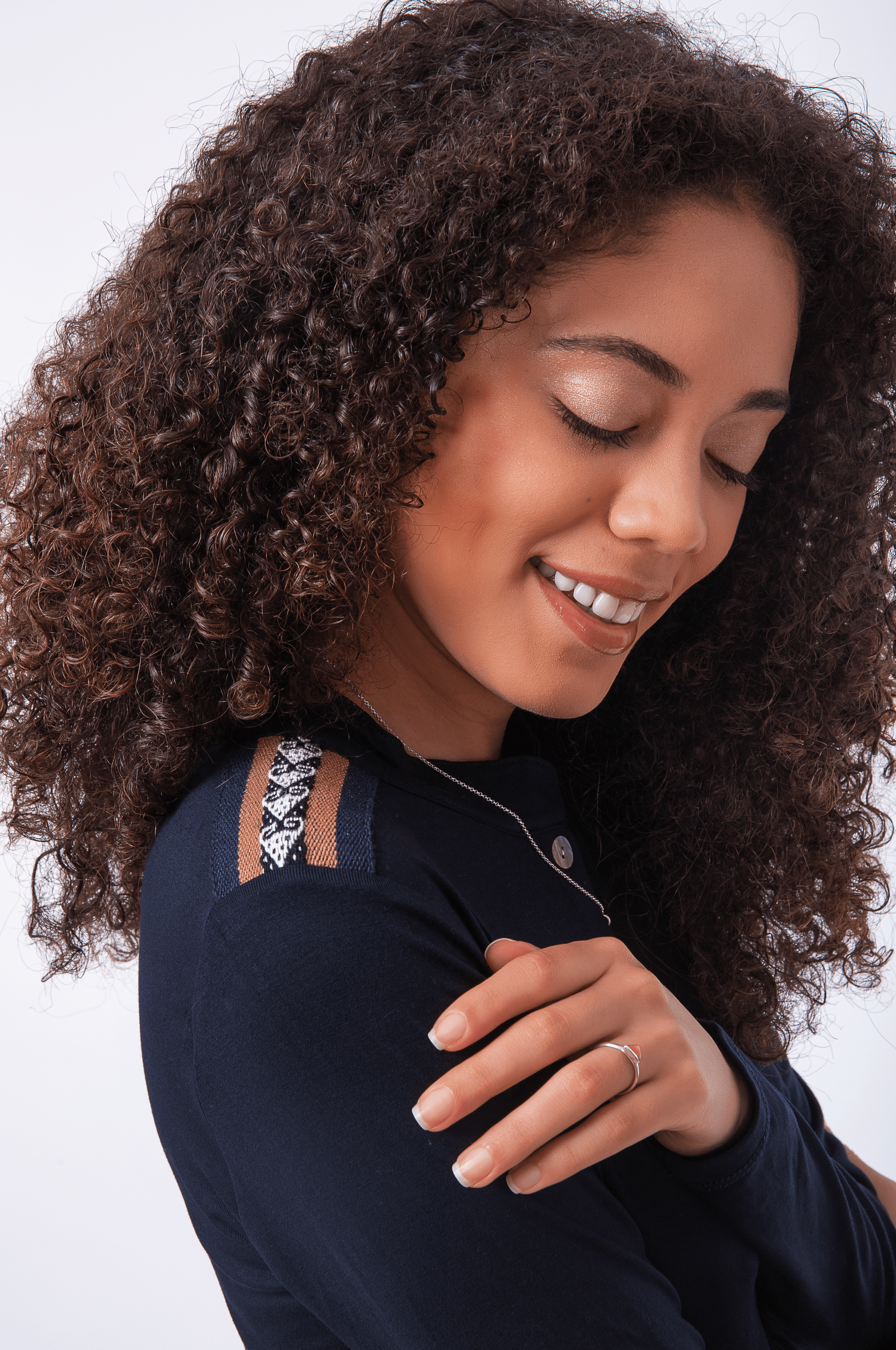
Related Articles.
People Before Profit: A New Fair Trade Fashion Business Model To Support Garment Workers.
Founder and Designer Jenny Allan tells us her story.
Stories | By Emma Golley | 10.15.20
The Fashion Crisis Rippling Across a Global Industry:
How a family-run clothing manufacturing business is surviving during Covid-19.
We interviewed Mithun Govind based in Tirrupur, India to see how his family-run clothing manufacturing business is surviving during Covid-19.
Articles | By Emma Golley | 07.15.20
Fashion for Good.
Designer, Co-Founder and COO - Jovana Mullins, discusses the challenges and rewards that came with starting a sustainable, social impact brand dedicated to working with designers with Autism..
Stories | By Emma Golley | 06.16.20

